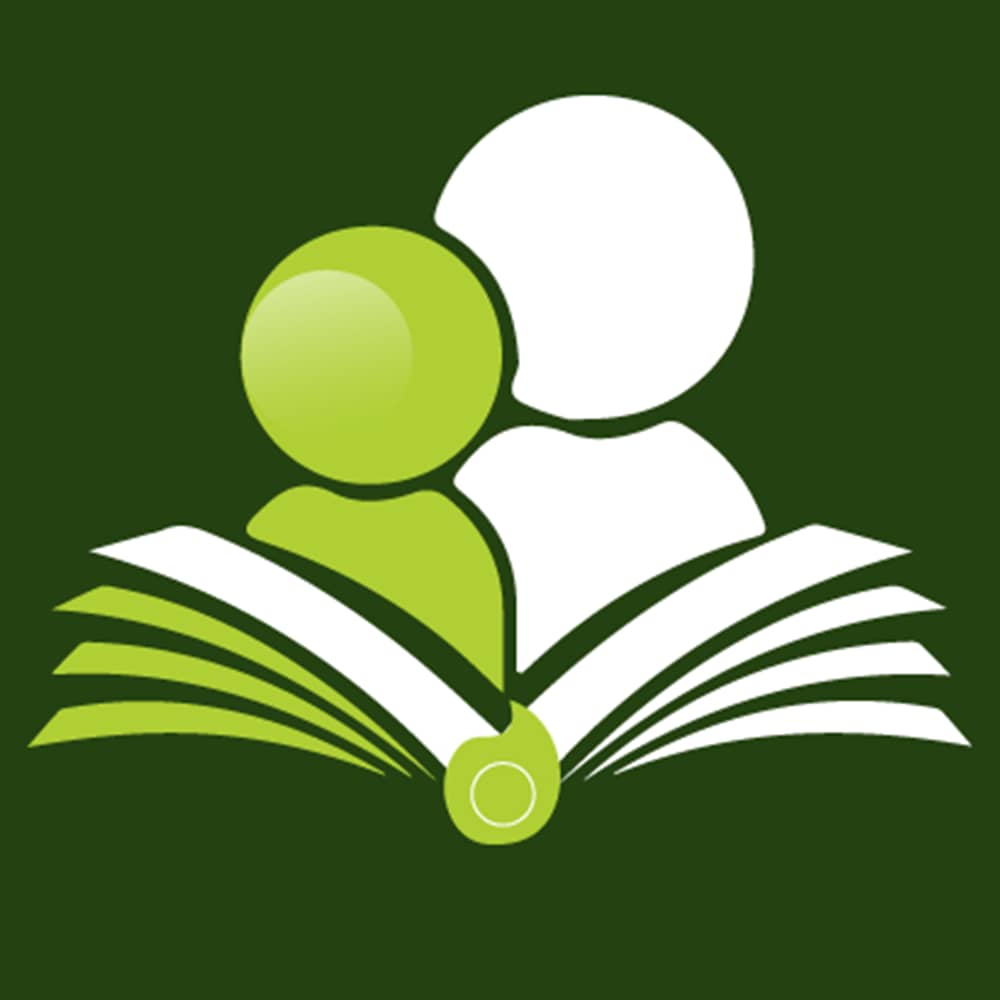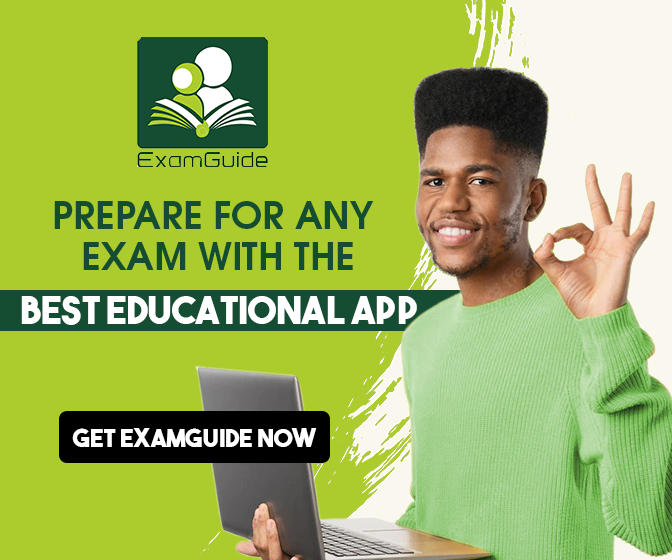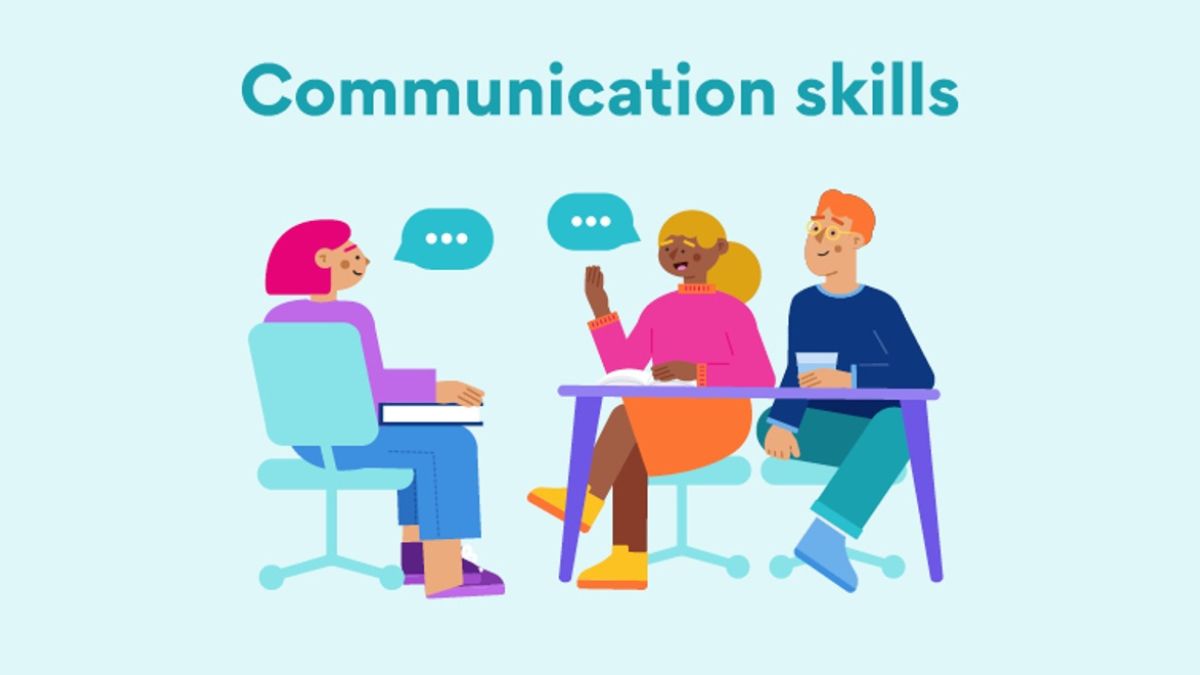
Effective Communication Skills Every Student Should Learn
In an era defined by fast changes and strong connections between people, effective communication skills have never been more crucial, especially for students. Whether in the classroom, at home, or in social settings, being able to communicate well opens doors to understanding, collaboration, and learning.
Students with strong communication skills are better prepared to succeed academically and socially.
This article explores essential communication skills that every student should learn to thrive in both academic and personal life.
Table of Content
Why are communication skills important for students?
9 Best Effective Communication Skills Every Student Should Learn
Why are communication skills important for students?
Communication skills are important for students because they form the foundation for success in both academic and personal life. Here's why:
1. Improved Academic Performance
Effective communication enables students to express their ideas, thoughts, and questions clearly in the classroom. This helps them engage with teachers and peers, participate in discussions, and demonstrate understanding. Strong communication skills also play a critical role in writing essays, and reports, and delivering presentations.
2. Collaboration and Teamwork
In group projects, students must collaborate with peers. Good communication skills help in articulating ideas, listening to others, negotiating ideas, and resolving conflicts. This not only makes the team more efficient but also fosters better relationships between students.
3. Confidence Building
Students with strong communication skills are more confident in speaking, asking questions, and participating in various academic activities. This boosts their self-esteem and encourages active involvement in school life, enhancing their overall learning experience.
4. Better Problem Solving and Critical Thinking
Clear communication allows students to articulate problems and solutions effectively. Whether in discussions or writing, students who can express themselves well can better analyze situations, explore ideas, and develop critical thinking skills. This is crucial for academic assessments and real-life decision-making.
5. Conflict Resolution
In an academic environment, misunderstandings and conflicts are inevitable. Students who can communicate effectively are better at resolving conflicts, negotiating with peers, and maintaining positive relationships. They can express their concerns respectfully and listen to others, leading to better collaboration and fewer confrontations.
6. Career Readiness
The communication skills students develop during their academic years are vital for their future careers. Employers often look for individuals who can communicate clearly and effectively in both written and spoken forms. Whether in interviews, presentations, or meetings, students with good communication skills are better prepared for the professional world.
7. Emotional Intelligence and Empathy
Good communication promotes emotional intelligence, as it helps students to understand and express their feelings appropriately while also empathizing with others. This leads to stronger interpersonal relationships, as students are more sensitive to the feelings and perspectives of their peers.
9 Best Effective Communication Skills Every Student Should Learn
1. Active Listening
Active listening is more than just hearing; it involves fully understanding the speaker’s message by paying close attention to their words, tone, and body language. When students engage in active listening, they promote a respectful environment and absorb information more effectively.
This skill is particularly useful in group projects, classroom discussions, and even when receiving feedback from teachers.
Tips for Developing Active Listening:
- Focus on the Speaker: Avoid distractions and maintain eye contact.
- Show Engagement: Nod occasionally, smile, or use small verbal cues like "I see" or "I understand."
- Avoid Interrupting: Let the speaker finish before you respond.
- Ask Questions: Clarify points you don’t understand by asking questions.
2. Clear and Concise Speaking
Being able to express ideas clearly and concisely is an essential skill for students. When ideas are communicated in a straightforward way, listeners are more likely to understand and respond positively.
Clear communication minimizes misunderstandings and boosts confidence, whether in-class presentations, group discussions, or everyday conversations.
Tips for Speaking Clearly:
- Know Your Audience: Adjust your tone, language, and style according to the listener.
- Stay on Topic: Focus on the main point, avoiding unnecessary details.
- Practice Articulation: Speak slowly and pronounce words, especially if speaking in front of a group.
- Be Mindful of Non-Verbal Cues: Maintain appropriate eye contact and use gestures to emphasize points.
3. Non-Verbal Communication
Non-verbal cues, such as facial expressions, posture, gestures, and tone of voice, play a significant role in effective communication. They often reveal emotions and intentions that words cannot convey.
Learning to interpret and use non-verbal communication helps students enhance their relationships and ensure their verbal messages are well-received.
Developing Non-Verbal Communication Skills:
- Maintain Good Posture: A confident posture can enhance credibility.
- Use Facial Expressions Wisely: A smile can create warmth, while a frown might convey concern.
- Be Mindful of Body Language: Avoid closed-off postures, such as crossing arms, which may seem defensive.
- Pay Attention to Tone and Volume: Adjust your voice to convey the right emotions and avoid monotone speech.
4. Constructive Feedback and Receiving Criticism
Providing constructive feedback is a valuable skill in collaborative environments, such as group projects. Likewise, being able to receive criticism without taking it personally is key to personal growth and improvement.
Constructive feedback helps students identify strengths and areas for improvement while fostering mutual respect.
Tips for Giving and Receiving Feedback:
- Focus on Behavior, Not Personality: Give feedback on specific actions rather than generalizing about the person.
- Be Specific: Use concrete examples to explain points.
- Use Positive Reinforcement: Acknowledge what was done well before suggesting improvements.
- Stay Open-Minded When Receiving Feedback: Approach criticism as a learning opportunity and ask clarifying questions if necessary.
5. Empathy and Emotional Intelligence
Empathy, the ability to understand and share another’s feelings, is crucial for effective communication. Emotional intelligence involves recognizing emotions in yourself and others and managing them appropriately.
For students, empathetic communication promotes meaningful relationships and allows for better conflict resolution.
Practising Empathy in Communication:
- Listen to Understand: Try to see things from the other person’s perspective.
- Acknowledge Feelings: Let people know that you understand how they feel by validating their emotions.
- Manage Emotional Responses: Avoid reacting impulsively, especially in conflicts. Take a moment to process your feelings.
- Encourage Open Dialogue: Invite others to express themselves openly without fear of judgment.
6. Asking Questions and Seeking Clarification
Asking questions is a sign of active engagement and a desire to understand more deeply. It shows respect for the speaker’s knowledge and encourages collaborative learning. By seeking clarification, students can avoid misunderstandings and gain clearer insights.
Developing the Skill of Questioning:
- Ask Open-Ended Questions: These questions encourage discussion and in-depth responses.
- Seek Specifics for Better Understanding: Ask questions that clarify specific points to ensure a full grasp of the topic.
- Show Curiosity: A genuine interest in learning encourages a positive exchange of ideas.
- Practice Paraphrasing: Rephrase the speaker’s message in your own words to confirm understanding.
7. Public Speaking Skills
Public speaking is an important communication skill that allows students to express their thoughts and ideas confidently in front of an audience. From classroom presentations to group activities, public speaking develops self-assurance and the ability to engage others.
Improving Public Speaking Skills:
- Practice, Practice, Practice: Regularly rehearse to become familiar with the material.
- Use Visual Aids: Visuals can help clarify your message and keep the audience engaged.
- Engage with Your Audience: Make eye contact, ask questions, and use relatable examples.
- Manage Nerves: Take deep breaths and visualize success to calm anxiety.
8. Writing Skills for Effective Communication
Clear and effective writing is a critical skill for students, as it impacts everything from assignments to emails. Good writing involves clarity, conciseness, and an understanding of the audience.
Learning to communicate through writing builds students' confidence and prepares them for academic and professional success.
Improving Writing Skills:
- Outline Your Thoughts First: Organize your ideas before writing to improve coherence.
- Be Concise and Clear: Avoid unnecessary words and stick to the point.
- Edit and Proofread: Review your work for grammar, spelling, and clarity.
- Practice Different Styles: Experiment with essays, emails, reports, and creative writing to expand your range.
9. Conflict Resolution Skills
Conflict is a natural part of communication, especially in group settings. The ability to resolve conflicts peacefully and constructively is a valuable skill for students. Effective conflict resolution not only maintains positive relationships but also builds trust and respect.
Tips for Resolving Conflicts:
- Stay Calm and Listen Actively: Remain composed and fully understand the other person’s perspective.
- Seek Common Ground: Identify shared interests or goals that can lead to compromise.
- Be Respectful and Assertive: Express your thoughts honestly without aggression.
- Focus on Solutions: Work collaboratively to find a way forward rather than assigning blame.
Conclusion
Mastering effective communication skills is essential for every student, providing benefits that extend far beyond the classroom. By practising active listening, clear speaking, empathy, feedback exchange, and conflict resolution, students equip themselves with tools for academic success and personal development.
As these skills become second nature, students will find themselves more prepared for success in all aspects of life.
Frequently Asked Questions
What is active listening, and how can students practice it?
Answer: Active listening is the skill of fully concentrating, understanding, responding, and remembering what someone is saying. Students can practice active listening by focusing on the speaker, avoiding distractions, giving feedback through nodding or verbal cues, and asking questions to clarify points. This skill fosters better comprehension and stronger relationships.
How can non-verbal communication improve student interactions?
Answer: Non-verbal communication, including body language, facial expressions, and tone of voice, plays a big role in conveying emotions and intentions. For students, being aware of non-verbal cues can improve interactions by making their messages clearer and helping them interpret others' feelings, leading to stronger connections and understanding.
What role does empathy play in effective communication for students?
Answer: Empathy allows students to understand and share the feelings of others, creating a respectful and supportive communication environment. Practising empathy helps students better resolve conflicts, provide constructive feedback, and build positive relationships with peers and teachers, as they are able to see situations from different perspectives.
How can students overcome anxiety in public speaking?
Answer: Public speaking anxiety is common among students. To overcome it, they can prepare and practice their material, use deep breathing techniques to calm nerves, visualize a positive outcome, and engage the audience through eye contact and questions. Regular practice and a focus on the message rather than on themselves also help boost confidence over time.
What are constructive feedback skills, and why are they essential for students?
Answer: Constructive feedback skills involve giving and receiving helpful comments focused on improvement without being overly critical. These skills are essential as they enable students to work collaboratively, improve their own work, and develop resilience. Constructive feedback builds trust, fosters a growth mindset, and encourages open communication.
What are some ways to improve writing skills for better communication?
Answer: Students can improve their writing skills by organizing their thoughts with outlines, writing concisely, and proofreading for grammar and clarity. Practising different forms of writing (like essays, reports, and emails) and seeking feedback from teachers or peers are also effective ways to enhance writing. Good writing skills help in expressing ideas clearly and achieving academic success.
How does conflict resolution benefit students in group work?
Answer: Conflict resolution skills help students manage disagreements calmly and constructively, leading to smoother collaboration in group work. By focusing on common goals, listening actively, and seeking solutions together, students can resolve conflicts respectfully, maintain positive relationships, and achieve better outcomes in team settings.
Why is clear and concise speaking important in a learning environment?
Answer: Clear and concise speaking is important because it ensures that students' ideas are understood by their peers and teachers without confusion. This skill helps in classroom discussions, presentations, and even social interactions, making communication more effective and allowing students to express their thoughts confidently and accurately.
How can students practice empathy in everyday communication?
Answer: Students can practice empathy by actively listening to others, acknowledging different perspectives, and showing genuine interest in others' thoughts and feelings. Asking open-ended questions and validating others' emotions also demonstrate empathy, making communication more meaningful and building stronger connections with others.
No comment found
Related Posts
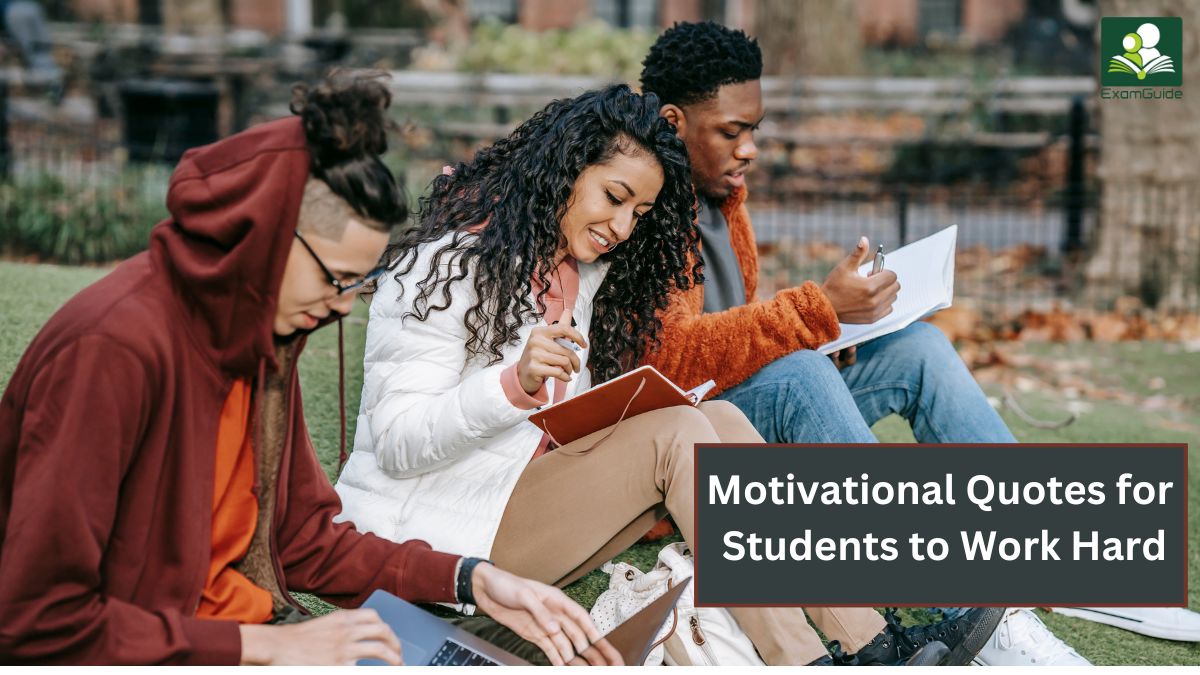
Top 20 Motivational Quotes for Students to Work Hard
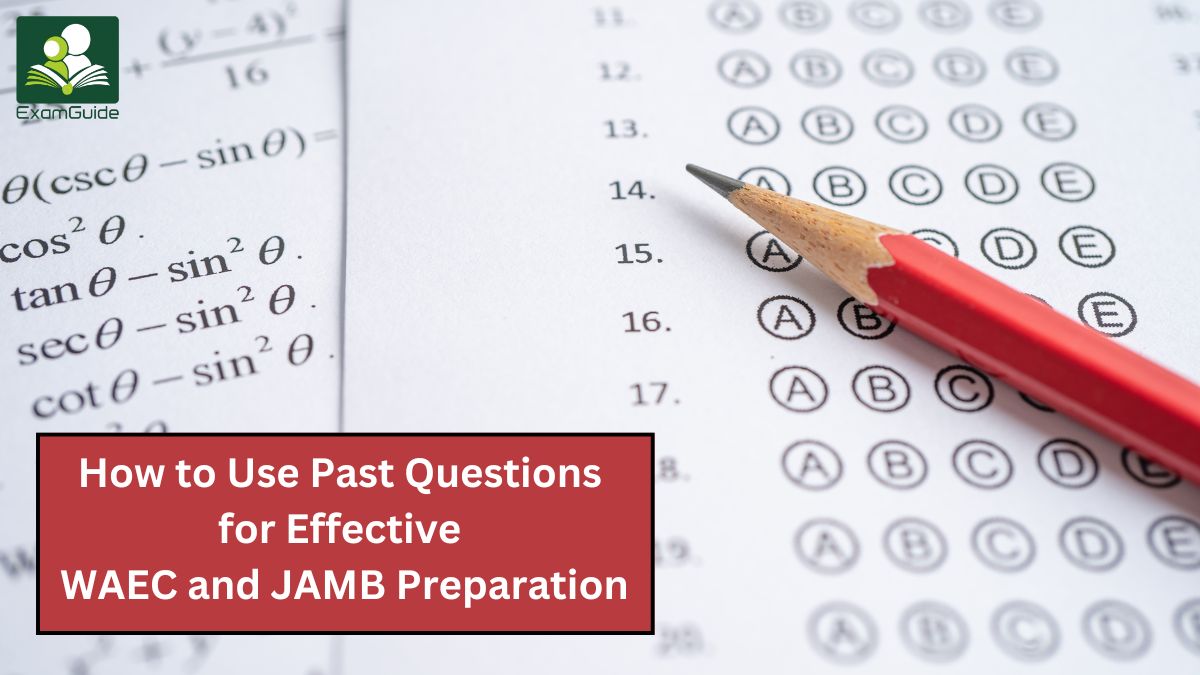
How to Use Past Questions for Effective WAEC and JAMB Preparation
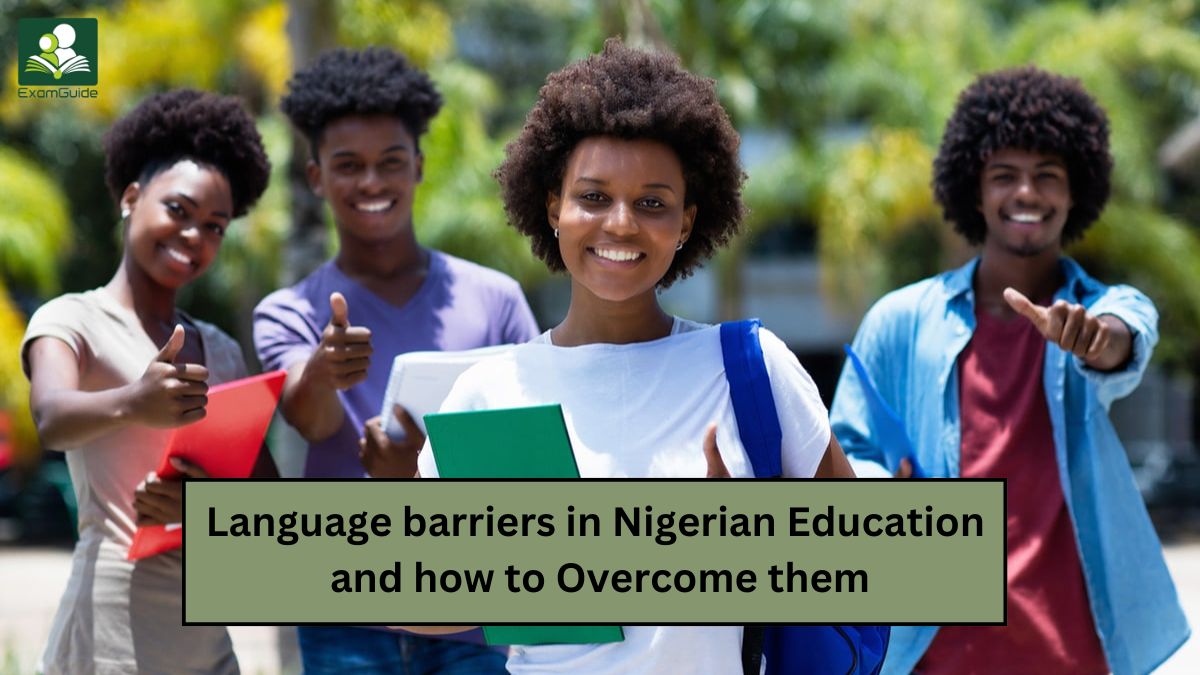
Language barriers in Nigerian Education and how to Overcome them

How to Excel in Mathematics: Tips for Nigerian Students
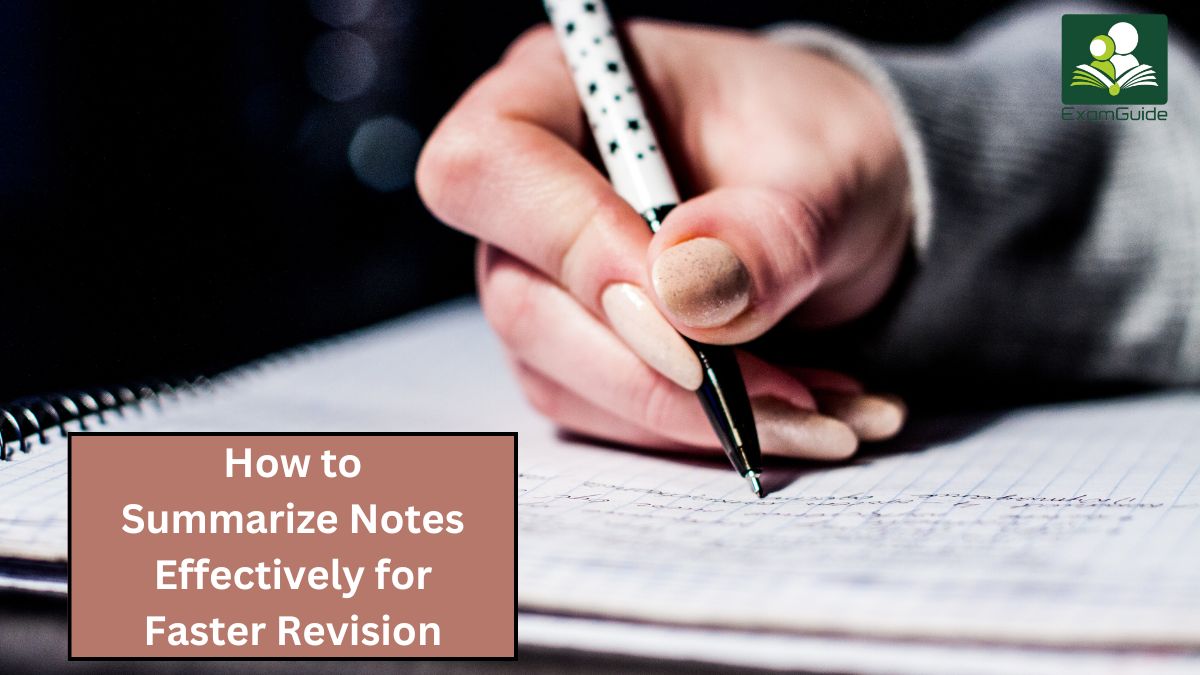
How to Summarize Notes Effectively for Faster Revision

